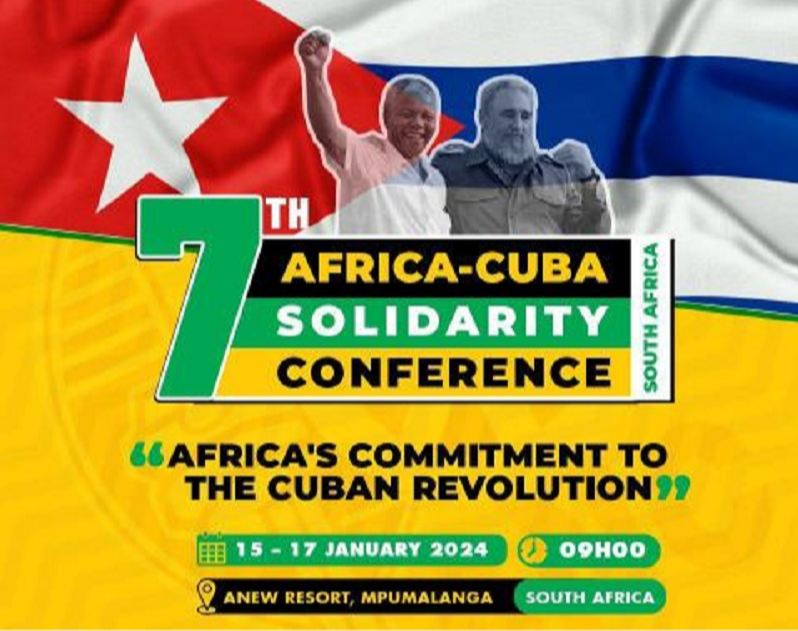
By Roberto Morejón
Almost twenty-nine years after historic leader Nelson Mandela spoke at the first Cuba-South Africa solidarity conference, the latter country has been the scene of an important meeting of friendship towards the Caribbean island.
The first president of independent South Africa emphasized in 1995 that Cubans went to Africa as doctors, teachers, soldiers, agricultural experts and never as colonizers.
This is how it has continued and for that reason the seventh Continental Meeting of Solidarity with the Caribbean archipelago, to be held in the northeastern South African city of Mbombela, is very timely.
More than two hundred representatives from some 25 countries gathered in the city, located some 100 kilometers from the border with Mozambique and characterized by its manufacturing and agricultural productions.
At the meeting, where several participants highlighted the contribution of Cubans in the international struggle for the freedom and independence of African countries, they talked about how to strengthen the ties that unite Antilleans and natives of the so-called black continent.
Addressing these issues is crucial in difficult circumstances for the Caribbean nation, when the U.S. blockade and the inclusion in a list of sponsors of terrorism, according to Washington's point of view, hinder Havana's relations with banks and other international entities.
At such pressing times, South Africa offered to host the meeting of solidarity with Cuba, where the number of 102 associations of friendship with that Antillean country existing in Africa was greeted with praise.
Since South Africa's independence, bilateral cooperation has expanded in health, education, science, technology, agriculture, infrastructure development, housing, water and communications.
Thousands of collaborators, mostly doctors, have served in South Africa, a trend also evident in other nations of the continent known for its remarkable natural resources.
At present, more than 4,000 Cuban health collaborators are in 29 African nations and 2,600 of them are doctors.
Thousands of young people from those latitudes are trained in Havana and other cities.
As stated by President Miguel Díaz-Canel during his visit to South Africa in August 2023, in the midst of its limitations and shortages, Cuba will continue its contribution to the training of young Africans.

